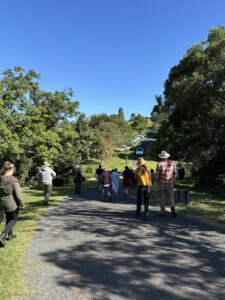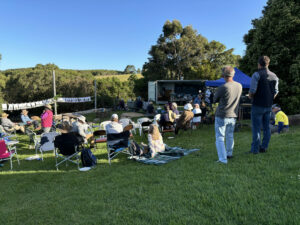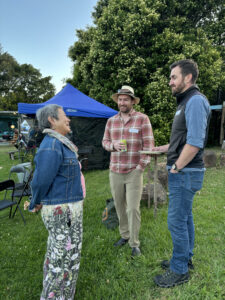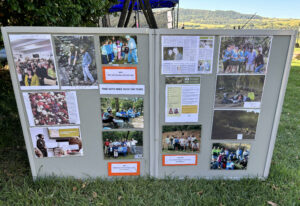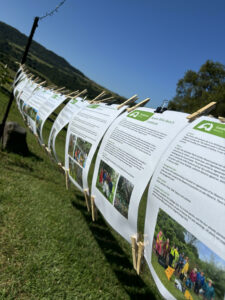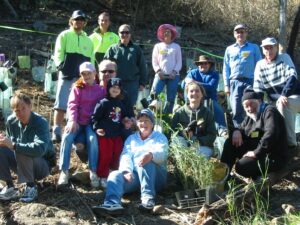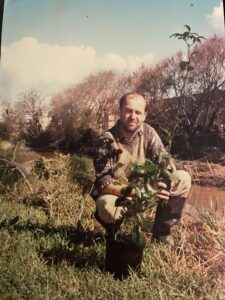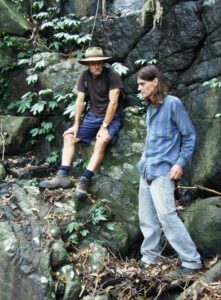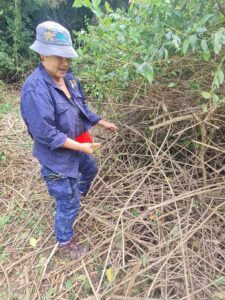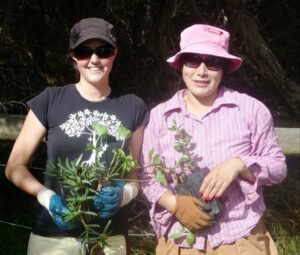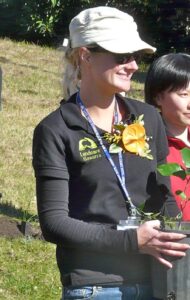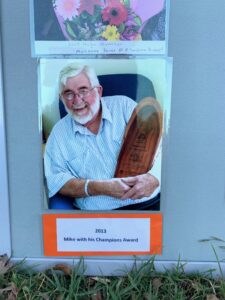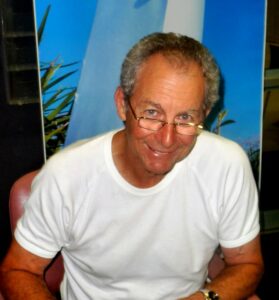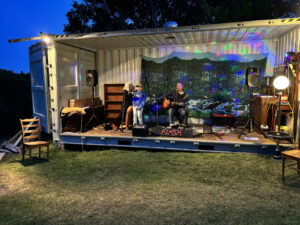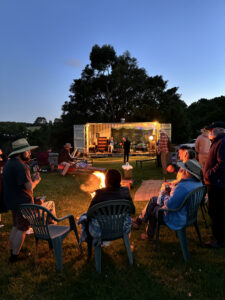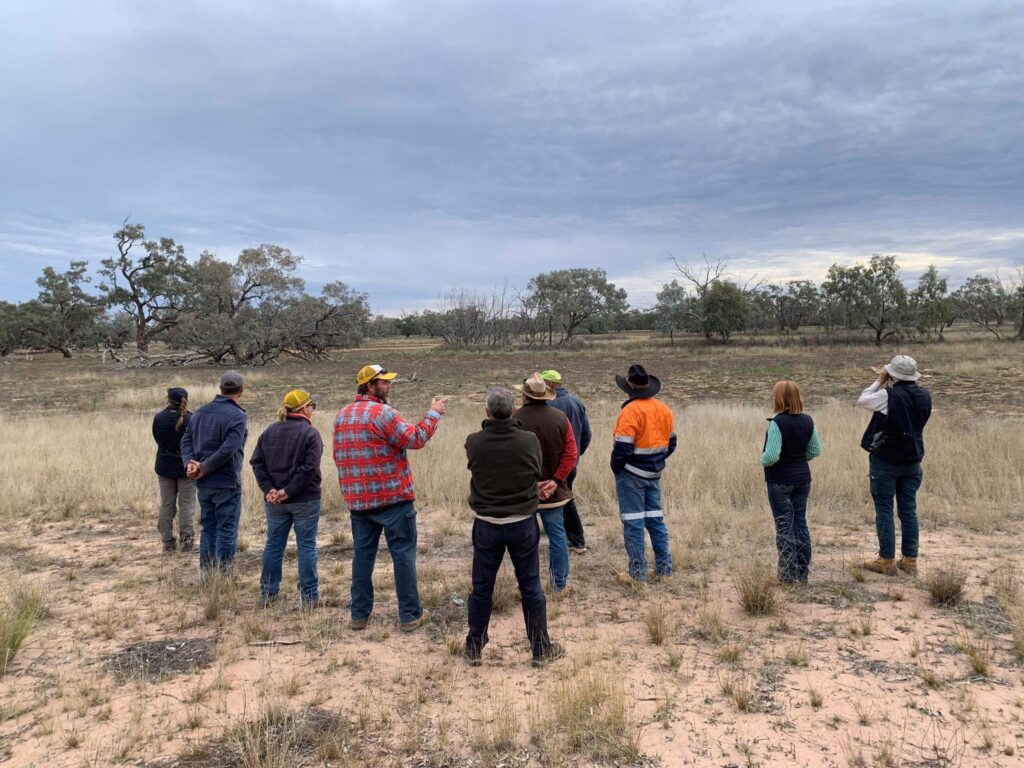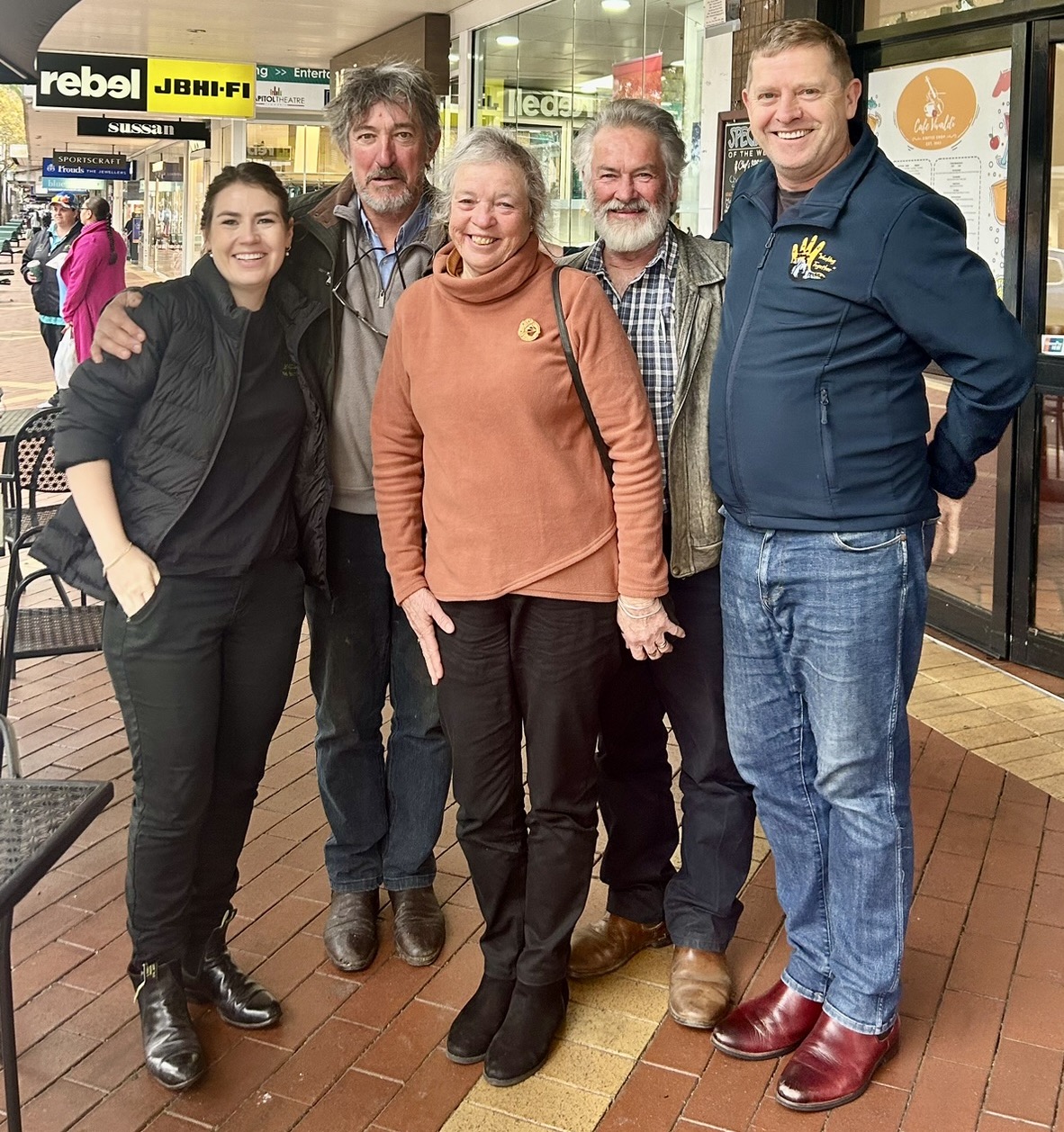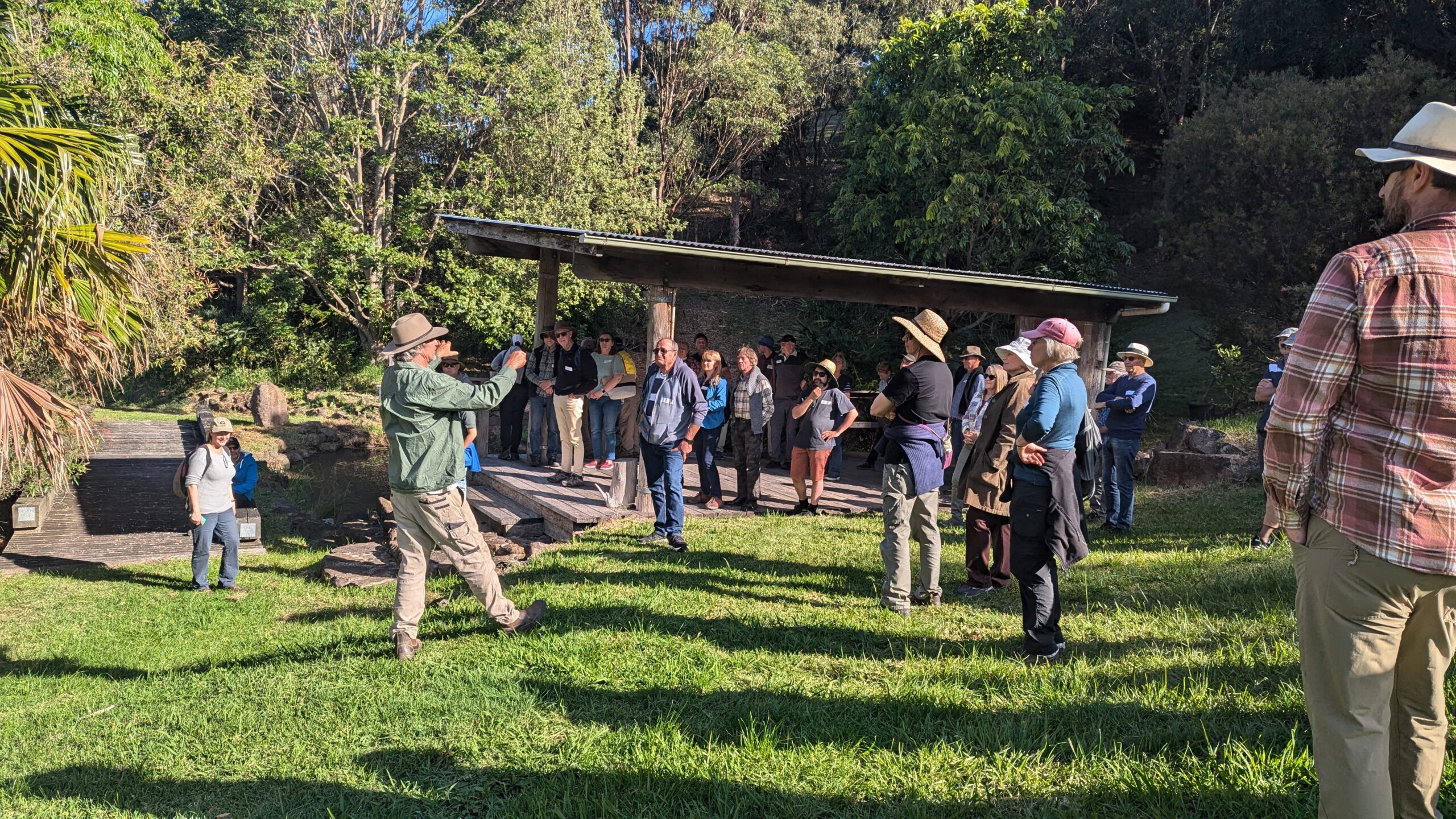
A Night of Connection & Reflection
Landcare Illawarra recently celebrated their 25th birthday. Like many 25-year-olds, Landcare Illawarra seemed confident, skilled, and somewhat mature…yet youthful. The celebration was held on a mild October evening at Curry’s Mountain Estate, a beautiful location and great supporter of Landcare in the Illawarra.
Attending this event was not just a trip down memory lane, reconnecting with volunteers, committee members and coordinators (past and present), it was also a reminder of the creative, resourceful and generous nature of Landcare.
The celebration included an outdoors AGM, live music, great food, a guided tour, and a photo display celebrating and remembering those who have been a part of Landcare Illawarra, including several wonderful souls who have since passed. One such soul was Mike Swanson, who exemplified the Landcare volunteer who just keeps on giving. Mike was Treasurer for Tullimbah Landcare, Landcare Illawarra, and South East Landcare, bringing commitment, patience and expertise to each of these roles.
Coordinators
In 1999, Landcare Illawarra was established, and with this their first coordinator was engaged. Alasdair Stratton was fresh-faced and eager, working with the four established Landcare groups and the Landcare Illawarra committee. Coordinators have long been a part of the Landcare infrastructure and tapestry, and play a critical role in the success of groups and networks. After 12 months in the role, Landcare Illawarra had 14 member groups spread across the Illawarra between the coast and the escarpment.
Another of Landcare Illawarra’s Coordinators, Megan Lee (previously Rowlatt), was passionate about bringing young people into Landcare, leading her to connect with Naomi Edwards from Queensland to start up a national youth-focused Landcare organisation called Intrepid Landcare (now 10 years old). The flow on effect from having secure and well supported Coordinators cannot be underestimated.
Science and Practice Leader
I was also reminded of the places where Landcare is a leader. Richard Scarborough and Anders Bofeldt will long be remembered for their passion and dedication to the woodlands and rainforests of the Illawarra, and their relentless pursuit of getting the right plant in the right place.
The Illawarra Woodlands and Rainforest Project targeted threatened ecological communities and outcomes for ecosystem integrity and restoration, anticipating changes with climate and site-specific succession. There are many plants and multi-purpose plantings across the Illawarra that are a direct result of the work from this project.
Partnerships
Stories were told from the time when Conservation Volunteers Australia were a key partner for Landcare Illawarra, offering the hosting arrangements for coordinators and providing a continuous supply of conservation volunteers to sites across the Illawarra.
Thank you Landcare Illawarra, for all the work, for a lovely evening, and for the trip down memory lane.
– Peter Pigott, NSW Landcare Program Community of Practice and Events Coordinator, Landcare NSW
Images via Landcare Illawarra and Landcare NSW
